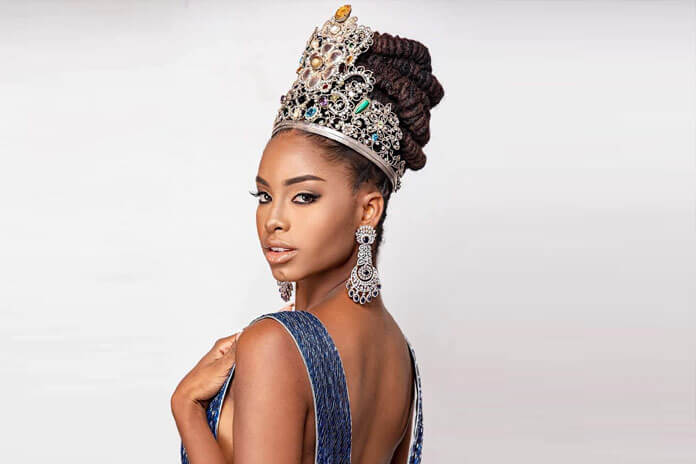BELIZE CITY, Thurs. Feb. 3, 2022– Despite a slew of accomplishments, including being the first-ever Belizean to hold the prestigious title of Miss Earth, Destiny Wagner—like countless other black women—has often faced discrimination and racism. Most notably, on January 28, 2022, Wagner took to her social media platforms to speak out against a pageantry fan page that had attempted to ridicule her by comparing her locked hair to cow feces.
In response to the attack, Wagner wrote, “As the first queen with locs to EVER win an international crown, I knew I would be subject to ridicule and criticism. People are often intimidated by things they do not understand. Many do not associate natural hair (dreadlocks/locs) with the word ‘beautiful’.”
Hair discrimination is one of the many ways that a history of colonization and racism still impacts communities, and it is, unsurprisingly, still a common occurence. Two years ago, a group of Belizean police officers turned to the Supreme Court after facing disciplinary charges for refusing to remove their dreadlocks. And while the Court ruled in favor of the officers, there have been many other instances, both in Belize and across other Afro-Caribbean nations, where schools, workplaces, hair salons, and other establishments have discriminated against the natural texture of Afro-descendants’ hair. Just recently, in January of 2021, the Belmopan City Council was accused of discrimination after a receptionist was told by her superiors to “do something” about her hair.
There are many other unreported instances, however, of black women (and men) being subject to the policing and criticism of their hair due to prevailing Eurocentric beauty standards and Eurocentric ideals that have greatly influenced what is deemed “acceptable” in the public eye.
Destiny Evelyn Wagner is the first of many things. Not only is she the first Belizean to hold the title of Miss Earth, but she is also the first black woman and the first woman with locs to do so.
“I think I’ve faced discrimination a lot, especially as a woman—a black woman—with natural hair. It’s not every day that you see a beauty queen with locs. In fact, I’m the first international queen to ever win a crown with locs. And a lot of cultures, they don’t understand the significance or the importance of the hair, so for them it’s unusual, and people are often intimidated by things that they do not understand, and that’s exactly what it is,” said Wagner to local media.
According to the beauty queen and entrepreneur, however, she has not been fazed by the attempts to bully her. Instead, she has been motivated to continue to use her platform to educate and inspire young women and men around the world to embrace who they are.
In her post regarding the recent attack, Wagner commented, “to many, ‘hair is just hair’, but to many others, including myself, hair is identity! My hair symbolizes strength, spirituality, and resilience, just like my ancestors.”
She then shared several photos depicting other Belizean women sporting—and embracing—their natural hair, and representing what she called “Black Girl Magic”.

